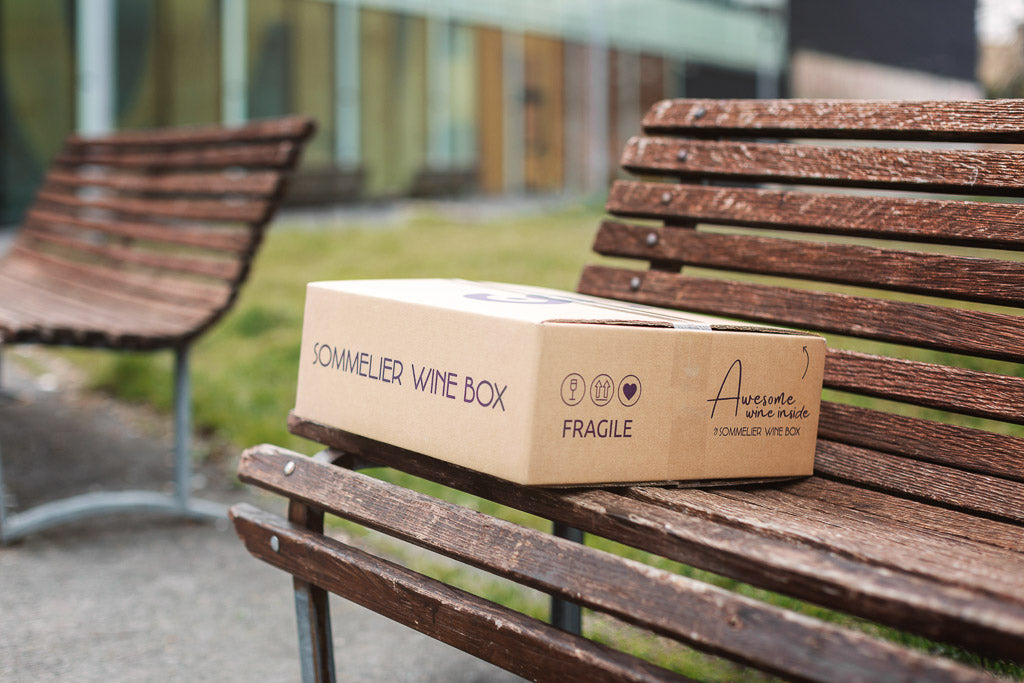Volcanoes tell an ancient story, a story from millions of years ago, both fascinating and frightening. The charm of volcanoes has to do with the uncontrollable force of nature, which creates and destroys, in an absolute sense and also in relation to wine. Volcanic wines are one of the latest and most important trends in the wine world. Let's see the 10 things you absolutely must know about volcanic wines.
Volcanoes have literally designed the Italian landscape, from north to south. If there are many volcanic soils scattered along the peninsula - with different traditions and techniques -, in the wines produced we find a common thread that unites them and holds them together, precisely in the sign of the power of the land of origin. Let's see the 10 curiosities to know about these magical wines, which we offered in selection in February .
1️⃣ What are volcanic wines?
They are wines that grow on soils of volcanic origin, and are deeply influenced by the volcano (whether active or not).
2️⃣ How many types of volcanoes are there?
Three. Active volcanoes (like Etna, which has made itself felt in recent days), dormant ones (i.e. those that could erupt at any time), extinct ones. The latter can be slightly or completely remodeled .
3️⃣ What are the advantages for vines growing on volcanic soil?
There are many advantages of growing vines above a volcano. Volcanic soils, as they tend to be sandy, have high permeability ; they are very rich in minerals ; the vine grown here is not attacked by phylloxera (which means: ungrafted vines , which can live for a really long time - becoming the famous old vines ).
4️⃣ Why are volcanic wines special?
The grapes grown on volcanic soils give the wine unique characteristics. The lapilli of which the magma is formed, which forms the soil, are made mainly of silica , iron and magnesium . The vineyard absorbs these "humours" and returns them to the glass.
5️⃣ What are volcanic wines like?
In Italy there are many volcanic soils, from which it follows that volcanic wines take on different characters. But there are characteristics that bind volcanic wines and make them so special.
Minerality , flavor , acidity above all. And then: persistence , elegance and complexity . In addition to the excellent predisposition to longevity .
6️⃣ What numbers are we talking about in Italy with reference to volcanic wines?
The "volcanic" hectares of vineyards are over 17 thousand, from which approximately 150 million bottles of volcanic wines derive.
7️⃣ What are the main volcanic districts in Italy?
There are many volcanic territories that produce great wines in Italy. Among these: Soave, Lessini Durello, Gambellara and Colli Euganei (in Veneto ); Cembra Valley in Trentino ; Boca in Piedmont ; Orvieto in Umbria ; Pitigliano in Tuscany ; Montefiascone, Vignanello, Gradoli, Tuscia and Frascati (in Lazio ); Campi Flegrei, Ischia, Vesuvius (in Campania ); Vulture in Basilicata ; Mogoro in Sardinia ; Aeolian Islands, Etna, Pantelleria in Sicily .
8️⃣ Is there a consortium for the protection of volcanic wines?
Needless to say, the concept of volcanic wine is very fluid. But the Soave Protection Consortium created the Volcanic Wines association in 2021, with the aim of giving identity and creating a real wine movement of the volcanic lands.
9️⃣ Who is the most expert sommelier of volcanic wines in the world?
The most universally recognized is John Szabo , Canadian master sommelier, author of the book "Volcanic Wines, salt, grit and power". He is responsible for leading the Volcanic Wines International movement, which currently includes Armenia, Chile, France, Germany, Greece, Israel, Italy, Portugal, Spain and the United States.
1️⃣ 0️⃣ What are the most important volcanic wine-producing territories in the world?
Outside Italy, among the many, the volcanic wines of: Santorini (Greece), Somló (Hungary), Azores (Portugal), Tenerife and Lanzarote , in the Canaries (Spain), Baden (Germany), Lake Country (California) are worth trying , USA).




